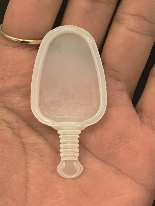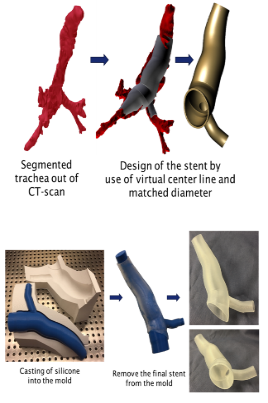Tailor-made medical devices to perfectly fit patients’ anatomy and support failing functions
Obturator for Cleft Palate

In this project a patient-specific 3D printed prosthetic device for closing the palatal defect has been developed. The device is based on imaging data (CBCT, CT, MRI) or intra-oral scan of the palatal defect. The device can offer greater accuracy and biocompatibility as compared to conventional obturators based on intraoral alginate impressions.
Patient-specific silicone models manufactured using 3D-printed molds

For various applications, patient specific elastic 3D models are needed. Such models often require special material properties (tissue like behavior, able to resist suturing, high tear propagation strength or high transparency). 3D-printed parts are limited in their mechanical properties, transparency, or applicability in wet surroundings. Therefore, a workflow with 3D-printed molds has been established to create patient specific 3D models out of silicone materials that offer a wider range of material properties. Recently an airway stent has been modeled and successfully casted in silicone. This workflow is cost and time effective and therefore also applicable for individual, patient specific parts.
